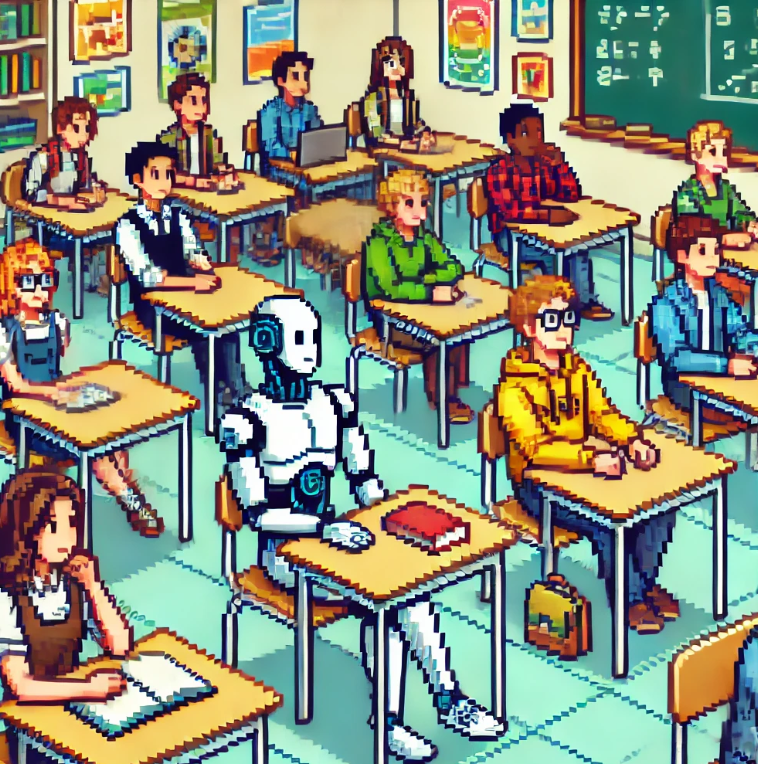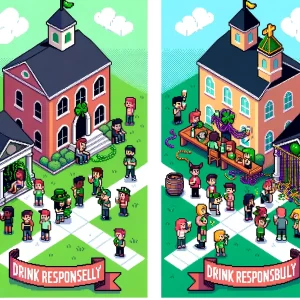
AI in Education
An Invisible Threat?
Artificial Intelligence (AI) is no longer a futuristic concept confined to sci-fi movies or high-tech labs. Today, it’s at the heart of our everyday lives, shaping industries from healthcare to entertainment. But there’s one area where AI’s rapid development is causing an unprecedented shift: education. Imagine this – a student, faced with an upcoming exam or a complex essay, opens their laptop, types a question into an AI chatbot, and within seconds, the AI provides a polished answer that outperforms their classmates. Is this the new norm? And if so, how can educators and institutions detect and prevent such academic misconduct? These questions are at the forefront of a groundbreaking study that’s shaking the foundations of traditional education.
AI’s Hidden Role in Academic Success
What if I told you that AI can now pass exams better than most students? It’s not a futuristic possibility but a present-day reality. A recent study at a top UK university set out to test just how well AI could perform in university-level exams. The researchers used a state-of-the-art AI model, GPT-4, to submit answers for a variety of undergraduate psychology exams, without any of the markers knowing. The result? AI submissions were undetectable 94% of the time, and even more astonishingly, AI outperformed human students, often securing top grades.
This is not just a fluke or a one-off experiment. As AI continues to evolve, its ability to generate coherent, well-reasoned answers in mere seconds means that students have an unprecedented tool at their disposal, one that can easily bypass traditional methods of academic evaluation. The implications are vast – not only for students and teachers but for the very integrity of our education system.
The Turing Test Comes to the Classroom
For those unfamiliar, the Turing Test, devised by British mathematician Alan Turing in the 1950s, was designed to assess a machine’s ability to exhibit intelligent behavior indistinguishable from that of a human. In this modern iteration of the Turing Test, AI’s goal wasn’t just to sound like a human – it was to outperform one.
In the study, AI-generated responses to both short-answer and essay-based exam questions were submitted as if they were written by real students. The AI didn’t just meet expectations; it exceeded them. On average, AI submissions received grades higher than most student submissions, particularly in the case of short-answer questions where quick, factual recall is key. More complex essays saw AI still holding its own, often performing at the same level or slightly better than the average student.
This raises a pivotal question: If AI can ace exams better than students, what does this mean for the future of education? And more critically, how do we ensure that students are actually learning and not just relying on AI?
The Threat to Academic Integrity
Let’s face it, academic misconduct is not a new phenomenon. Plagiarism, copying, and other forms of cheating have plagued educational institutions for centuries. But AI introduces a whole new level of complexity to this issue. Unlike traditional forms of cheating, AI-generated work is often original, well-structured, and nearly impossible to detect using current plagiarism detection tools.
When students use AI to generate answers, they’re not simply copying from another source – they’re getting a unique, algorithmically generated response based on billions of data points. This means that traditional plagiarism detectors, like Turnitin, are often helpless against AI-authored work. AI detectors, which were designed to catch AI-generated text, have also proven unreliable. In fact, even OpenAI’s own detection tool was withdrawn after it failed to consistently identify AI-authored content.
For educators, this presents a daunting challenge. How do you spot AI-assisted work when it’s almost indistinguishable from that of a highly competent student? And what’s stopping students from using AI to write their coursework, or worse, sit their exams?
Education in the Age of AI: Embrace or Escape?
The problem with AI in education is not simply a question of ethics. It’s a question of how we adapt to this new reality. Moving forward, banning AI outright from academic settings might be as futile as trying to ban the internet. Instead, the conversation needs to shift toward embracing AI as a tool that can enhance, rather than replace, learning.
Consider this: In the real world, professionals in fields like law, medicine, and engineering are increasingly using AI to assist them with complex tasks. Doctors use AI to analyze medical data, lawyers use it to sift through case files, and engineers use it to design and optimize projects. So, why should education be any different? Perhaps the key is not in stopping students from using AI, but in teaching them how to use it responsibly and effectively.
Instead of banning AI, educators could design assessments that focus more on critical thinking, problem-solving, and creativity – areas where AI currently falls short. For example, instead of asking students to recall facts, assessments could involve practical, real-world problems that require students to apply their knowledge in innovative ways. This would make it much harder for AI to simply “spit out” the right answer.
The Future of Academic Assessments
If AI is here to stay, then assessments will need to evolve. One potential solution is a return to supervised, in-person exams, where students are required to demonstrate their knowledge without access to external tools like AI. However, this alone won’t solve the problem, as coursework, essays, and take-home exams remain a significant part of the academic landscape.
Alternatively, assessments could shift toward more project-based learning, where students work on long-term projects that require deep engagement and creativity. In such scenarios, while AI could assist with research and analysis, it cannot replace the human element of insight and innovation.
Moreover, educators might need to rethink how they assess students’ understanding. Instead of focusing on the end result – the answer – assessments could place more emphasis on the process. For instance, students might be asked to document their thought process, show how they arrived at their conclusions, and reflect on the tools they used (including AI). This would not only deter cheating but also foster a deeper level of learning.
Join the Conversation
As we stand on the brink of an AI-powered revolution in education, the questions we must ask ourselves are not just about preventing academic misconduct but about shaping the future of learning itself.
- How do you think AI could enhance or harm the learning experience in schools and universities?
- Should educators embrace AI as a tool for learning, or is the risk of academic misconduct too great?
Unlock Science Secrets:
Discover revolutionary research and innovative discoveries with ‘This Week in Science’! Designed for educators and science lovers, our free weekly newsletter offers insights that can transform your approach to science. Sign up now and deepen your understanding and passion for science. If you liked this blog, please share it! Your referrals help This Week in Science reach new readers.



